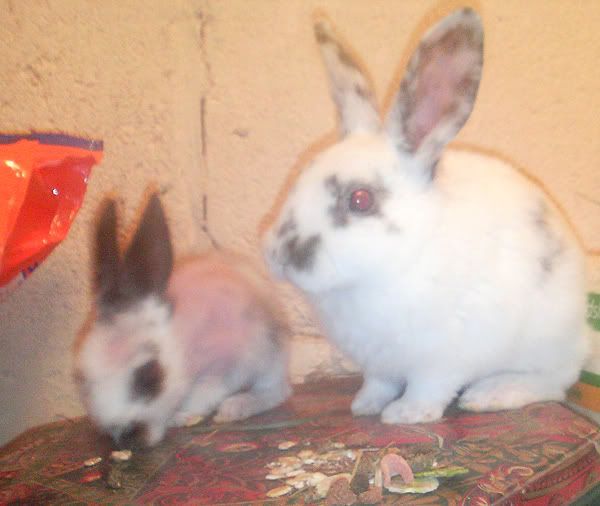Jenson
Well-Known Member
This poor little guy is from my litter of 10 Standard Rex. The other 9 are all big, healthy kits. This one is just not growing, he gets fed on his own everyday, he has pellets, hay, dried grass, porridge oats, banana...but he just doesn't grow and now he is starting to lose his fur. He doesn't get picked on, he's the biggest personality of the bunch, he just doesn't grow. He's such a sweet little thing, but I'm starting to lose hope. Is there anything I can do?





